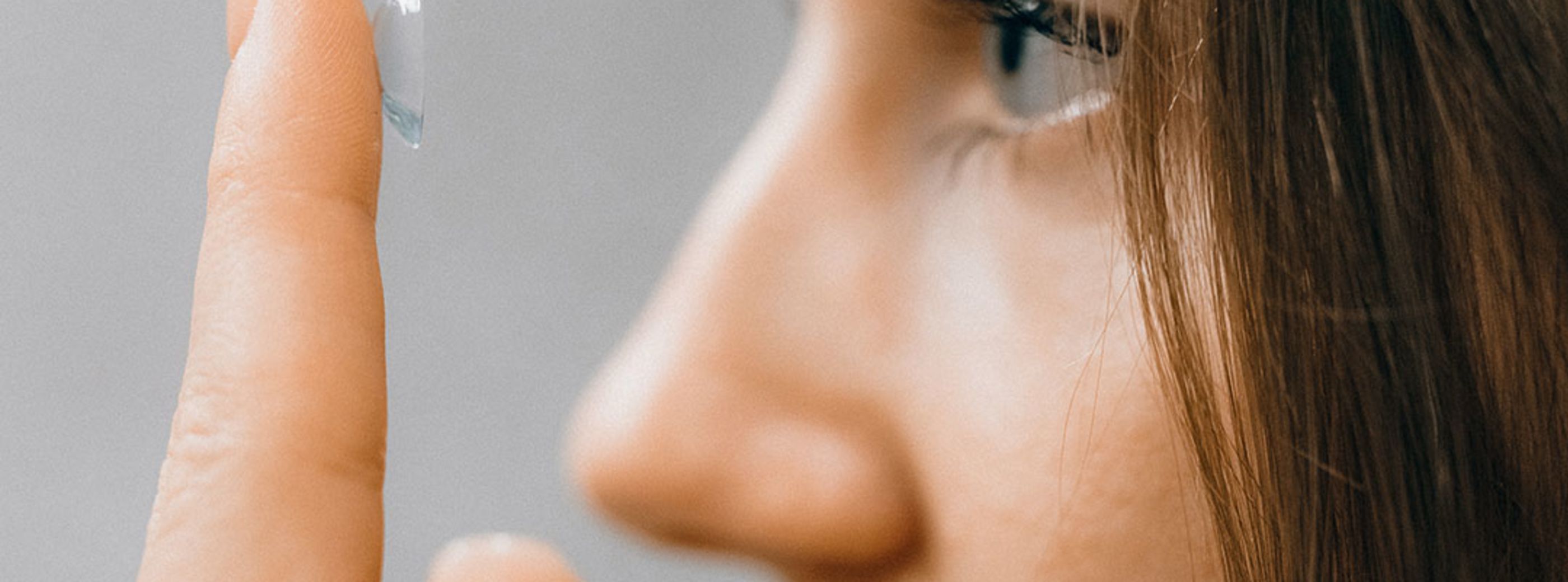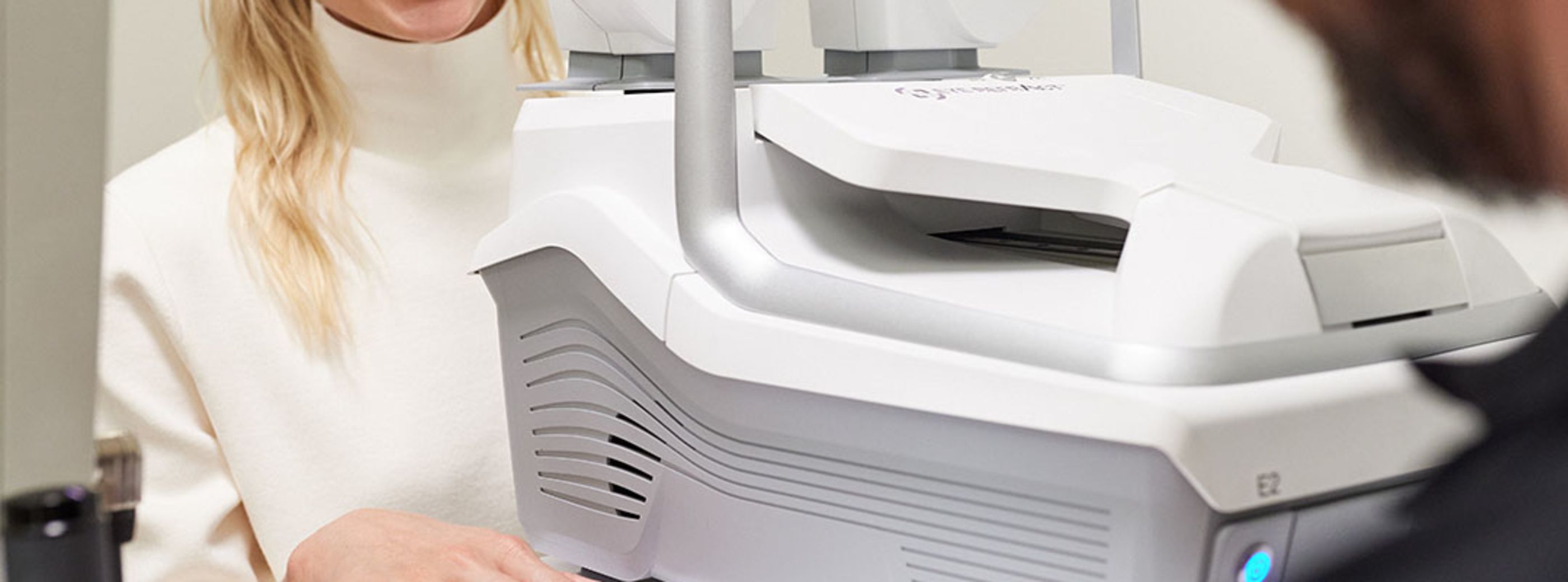Soft and hard contact lenses Comparison

Soft and hard contact lenses: A comparison
Whether you're at the gym, watching TV on the sofa, or at work, many people who are near-sighted or farsighted prefer contact lenses to glasses. The ease of use and comfort, especially during activity or in the rain, make contact lenses a practical alternative.
However, with so many options available, choosing the right type of contact lenses can be challenging. One of the most important decisions is between hard and soft lenses. What are the advantages and disadvantages of each? This article explains the main features of both types of contact lenses.
Tip: Hard or soft lenses? Always start with a visit to your optician. They will examine your eyes, fit your lenses and help you choose the best option.
Hard contact lenses
Rigid gas permeable lenses, often called hard lenses, are known for their rigid shape and high oxygen permeability. Unlike their soft counterparts, which are made of flexible materials that easily conform to the eye, hard lenses maintain a constant shape and provide sharper, clearer vision. But what makes rigid lenses unique and how do they differ from soft lenses?
What are rigid gas permeable lenses?
Rigid gas permeable lenses are made from a rigid yet gas permeable material. This allows the lenses to hold their shape when placed directly on the eye and prevents them from warping or folding like soft lenses. Many contact lens wearers choose rigid lenses for their durability, quality, and the clear vision they provide.
While soft contact lenses tend to have a larger diameter that extends beyond the iris, rigid lenses tend to be smaller, covering only the central part of the eye. Their smaller size makes them less movable on the eye, so they stay in place when you blink or move your eyes. Some wearers may find rigid lenses uncomfortable at first, but their positioning and shape often result in superior, distortion-free vision compared to soft lenses.
Adaptation period for hard lenses: Patience is key
If you choose rigid gas permeable lenses, it's important to understand that your eyes and brain need time to adjust to the new sensation and vision. The rigid structure and smaller diameter of hard lenses may feel unfamiliar at first, and will require an adjustment period.
Unlike soft contact lenses, which are often comfortable right away, it may take a week or two or more before you feel comfortable wearing hard lenses all day. However, with patience and consistent use, the benefits of clear vision and high quality will soon outweigh the initial challenges.
Benefits of hard contact lenses: Why they are often the better choice
Superior oxygen permeability: Hard contact lenses are designed to allow optimal oxygen flow to the eye, ensuring comfort and reducing the risk of eye infections.
Durability and strength: A notable feature of hard contact lenses is their durability. They are more resistant to wear and tear, making them a cost-effective choice as they can be used for longer periods of time with proper care.
When are hard lenses the best choice? For people with certain eye conditions, such as keratoconus or high levels of astigmatism, hard lenses may provide better vision correction. Mister Spex always recommends that you make this decision after a thorough consultation with your optician.
Soft contact lenses
Soft contact lenses are larger than hard lenses and are characterised by their water content and silicone composition. These two characteristics influence the oxygen transmissibility of soft lenses.
Advantages of soft lenses
Flexibility and fit: Soft contact lenses are very flexible and conform well to the cornea, providing a tight fit and reducing movement on the eye. This makes them ideal for sports.
Immediate comfort: Soft lenses are generally more comfortable right from the start, providing a high level of spontaneous comfort. Many wearers quickly forget they're wearing them.
Oxygen transmissibility: Modern silicone hydrogel lenses offer excellent oxygen permeability, which benefits corneal health.
Variety of options: Soft lenses are available as daily, weekly or monthly disposable lenses to suit a variety of wearer needs.
Disadvantages of soft lenses
To maintain their shape, soft lenses require moisture, which they draw from the eye. This can lead to dryness that requires regular rewetting.
Are hard lenses right for you? Key decision criteria
There are several factors to consider before choosing hard contact lenses. Your individual eye condition is crucial. Hard lenses may be more effective for certain vision needs, such as high astigmatism or keratoconus. Personal preferences and lifestyle are also important. If you prefer to wear lenses for longer periods of time, hard lenses may be more suitable due to their durability.
The most important step is a professional lens fitting. This will determine your exact vision correction needs and assess the shape and health of your eyes.
Note: Always purchase contact lenses, hard or soft, with professional advice to ensure clear vision and healthy eyes.
Hard contact lenses: Your solution to clear, comfortable vision?
Hard contact lenses, also known as rigid gas permeable lenses, offer many benefits including superior oxygen permeability, durability and strength. They can be an ideal choice for those seeking long-lasting, high-quality contact lenses. However, proper fitting and care are essential. Note: Mister Spex does not offer rigid gas permeable contact lenses for fitting and purchase, but does offer information and care products for these lenses.
Conclusion: Which lenses are right for you?
The choice depends on two key factors: your tear film and your lifestyle. If you have dry eyes, hard contact lenses may be better because they allow more tear fluid to reach the cornea. For occasional wear, daily disposable lenses, which are only available as soft lenses, are a good option. They are also more suitable for sports.
/true-lens-sortiment)

/Kontaktlinsen-01)

/6713535-6807557-02)


